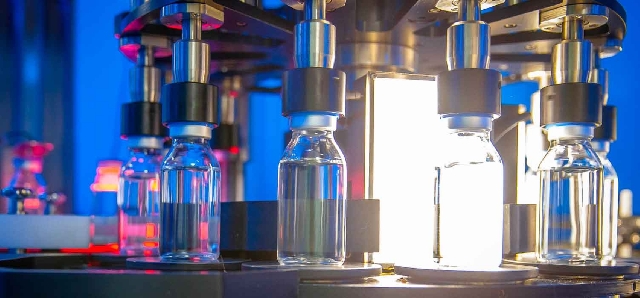COVID-19 has opened Africa’s eyes – and the world’s – to investment opportunities says AIF
 Pharmaceutical laboratory
Pharmaceutical laboratory
The Covid-19 pandemic has highlighted Africa’s urgent need for better healthcare. Unequal access to vaccines, along with disruptions to supply chains caused by worldwide economic shutdowns have underscored the continent’s overreliance on medical and pharmaceutical imports.
Investment opportunities in the healthcare and pharmaceuticals sectors are some of the areas being discussed at the Africa Investment Forum virtual boardroom sessions taking place this week. The Africa Investment Forum is a multi-stakeholder platform that advances private and public-private-partnership projects to bankability, raises capital, and accelerates deals to financial closure.
Under its Covid-19 response, the Africa Investment Forum is prioritizing sectors that can drive Africa’s resilience and accelerate the continent’s economic recovery from the impacts of the pandemic. "The Covid-19 pandemic has opened our eyes to both the necessity and the urgency with which we must create investment on the Africa Investment Forum platform," says Chinelo Anohu, its Senior Director.
The Africa Investment Forum has curated several investment-ready transactions that align closely with the three healthcare pillars outlined by African Development Bank Group President Dr Akinwumi A. Adesina.
These bankable opportunities are being showcased to investors during virtual boardroom sessions that the Africa Investment Forum partners are holding with investors, project sponsors and others from the 15th to 17th of March.
The investor boardroom sessions feature a $49 million transaction involving the construction of a pharmaceutical and biomedical hub in West Africa. The hub will incorporate a logistics platform, research and development facilities and an academic institution that could serve the region and the wider continent in vaccine manufacturing and drug and medical development.
A second vaccine-related transaction is a $45 million production plant in East Africa, which the World Health Organization has pre-qualified. The plant will routinely produce three vaccines, including one for Covid-19.
The World Health Organization recently announced that Kenya, Senegal, Tunisia, South Africa, Egypt and Nigeria would be the first participants in its mRNA technology transfer hub initiative. The initiative paves the way for the manufacture and licensing of a range of pharmaceuticals in these six countries. It is likely to trigger strong investor interest in Africa’s burgeoning pharmaceutical sector.
A third project is for the development of a 250-bed medical centre of excellence in a West African country. It will provide private specialist care. Its sponsors are seeking $100 million in investment.
While strengthening primary healthcare across Africa is the focus of the healthcare sector investments, a third boardroom transaction will address an anticipated surge in African cancer rates. Due to population growth and an ageing demographic, experts predict a 70% rise in new cancer cases across the continent by 2030. The cancer centre of excellence, to be set up in Southern Africa, will require $140 million in investment.
In addition to investments in healthcare infrastructure and manufacturing, there are other elements needed to build up Africa’s healthcare system. Key among these is closer intra-African economic integration to open new markets for domestically produced medicines. Also important is a regulatory framework that enables pharmaceuticals produced in one country to be legally sold in other countries.
The Africa Investment Forum and the African Development Bank Group have championed two initiatives that are driving trade integration and continentwide regulatory harmonization. These are the African Medical Agency and the Africa Continental Free Trade Area.
The African Medicines Agency harmonizes regulatory requirements to ease access to medicines. In partnership with its European Union counterpart, the African Medicines Agency is providing support to national regulatory authorities in several countries to achieve the World Health Organization’s minimum requirements for effective regulatory oversight to produce quality local vaccines.
The African Continental Free Trade Area is also expected to advance the integration of African markets and standards for pharmaceuticals and other goods.
Healthcare projects are expected to attract keen interest at this week’s Africa Investment Forum virtual boardroom sessions.
Source: afdb
Trending Business

Ghana signs seventh bilateral Debt Restructuring Agreement with Czech Republic
11:04
GIPC boss urges newly appointed Special Envoys to champion investment drive
10:05
Agri-Impact CEO welcomes gov't's massive agric budget increase
09:42
Main drivers of GDP growth in Q3 2025 are ICT, crops, trade, transport % storage, manufacturing and education – Govt Statistician
15:23
Take advantage of improving food conditions to rebuild savings – Government Statistician urges Ghanaians
15:20
Gov’t to roll out major VAT reforms in 2026 – Ato Forson
10:43
GIPC CEO engages U.S. Embassy on new investment bill
09:05
National Poultry Farmers VP warns egg sellers against overpricing as feed costs drop
12:13
Road Fund saddled with GHS 8bn as gov't undertakes independent audit to verify claims
11:38
Farmers’ bank: A lifeline for Ghana’s agricultural sector and growth-Sosu
10:36




